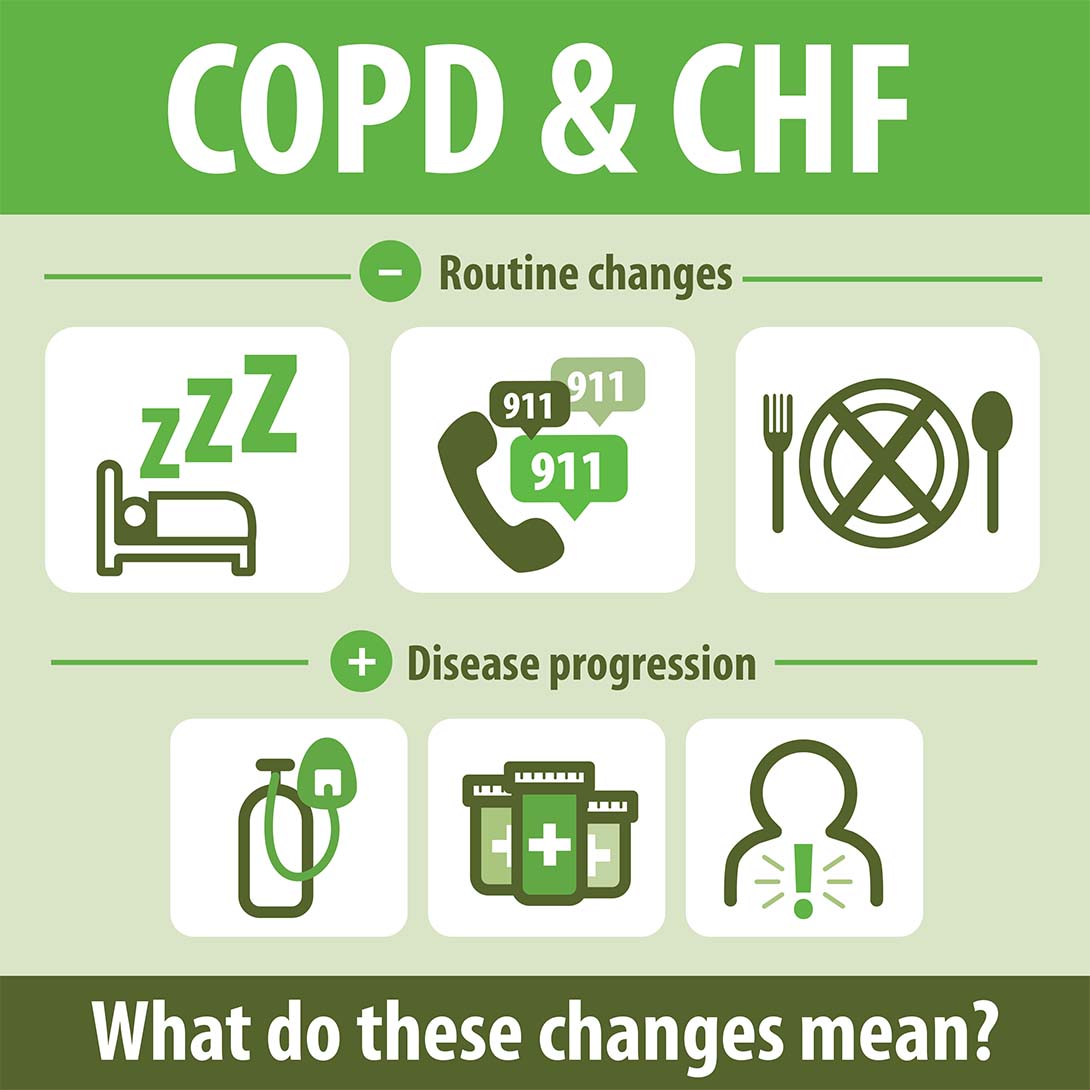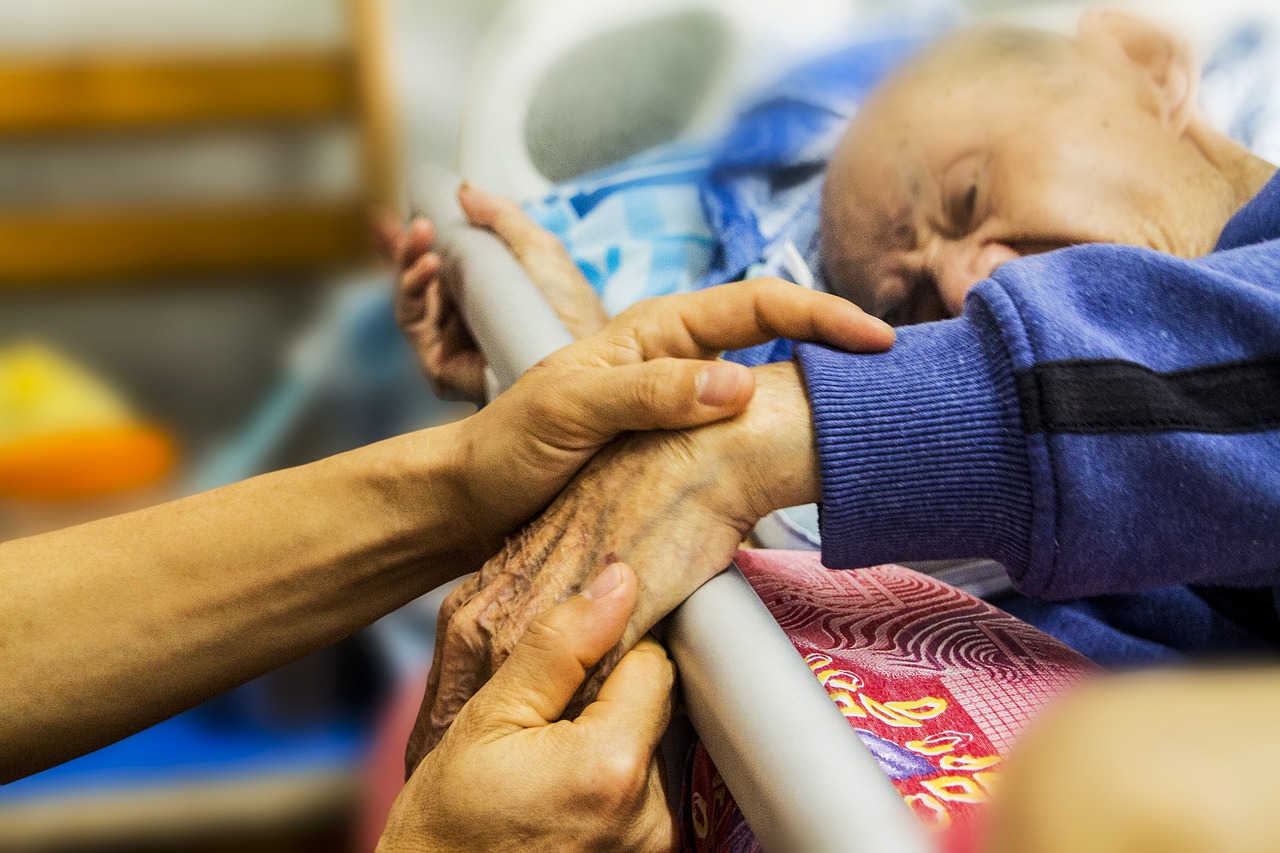Signs That Heart or Lung Disease Requires a Different Type of Care

Cardiopulmonary is a medical term that essentially means “heart and lungs.” The human body has many systems that are closely interconnected. The cardiopulmonary system is one of them – and it can be affected by many diseases including Congestive Heart Failure (CHF), Coronary Artery Disease (CAD), Chronic Obstructive Pulmonary Disease (COPD), Asthma, Pulmonary Fibrosis, and Emphysema. Managing these illnesses can be frightening, debilitating, and exhausting for both the patient and their caregivers.
Understanding when it is time to consider other treatment options is key to ensuring quality of life and comfort for cardiopulmonary patients. Palliative or hospice care can be the right option. Indicators that it is time to consider an evaluation may include:
- Shortness of breath
- Becoming too “winded” to eat or have long conversations
- Requiring oxygen or an increase in breathing treatments
- Coughing episodes
- Chest heaviness or chest pain
- Unable to lie flat, sleeping in a recliner or propped up with pillows
- Too tired to walk more than a few steps or can no longer walk at all
- Bluish tint around the mouth, fingers, or toes
- Hands and feet are cold to the touch or look “blotchy”
- Swelling of the hands, ankles and feet
- Frequent infections requiring repeated use of antibiotics
- Increased trips to the emergency room or repeat admissions to the hospital
- Treatments are less effective
When a patient with a cardiopulmonary disease is experiencing 3 or more of the above signs, palliative or hospice care could be a great benefit to the patient and family. A healthcare provider like Crossroads Hospice & Palliative Care offers both types of care and can determine the right program at the right time for each patient.
Palliative care is specialized medical care for people who are living with a serious illness. This type of care is focused on providing relief from the symptoms and stress of the illness. The goal is to improve quality of life for both the patient and family. Palliative care can be administered at any stage of a chronic illness.
When a patient receives a prognosis of six months or less to live, they may be eligible for hospice care. Hospice offers a team of highly-trained physicians and nurses to provide pain and symptom control and education on what to expect. Social workers are knowledgeable in finding much-needed resources and can provide emotional support. Non-denominational chaplains offer non-judgmental spiritual support. Bereavement specialists have the ability to listen empathetically and connect you with available resources. Compassionate hospice aides can change bed linens and provide patients with a warm, thorough bath, relaxing shampoo, fingernail care or even provide a back rub or hold a hand.
Another benefit of hospice is respite care. “Caregiving batteries” can run down very quickly when caring for someone with a cardiopulmonary disease. Respite care is designed to allow the caregiver to recharge their batteries by arranging for the patient to stay in a nursing facility for up to five consecutive days. This reprieve enables the caregiver to rest, attend a wedding or even take a road trip.
If you would like a healthcare professional to determine the best care plan, call Crossroads. We can make a difference and we perform assessments 24 hours a day, 7 days a week, 365 days a year. Please call us at 855-327-4677.




